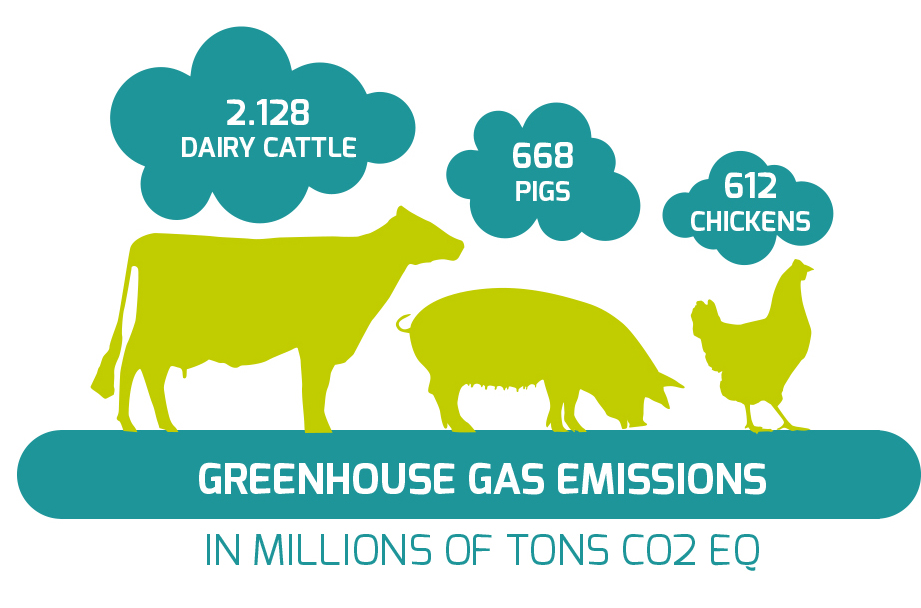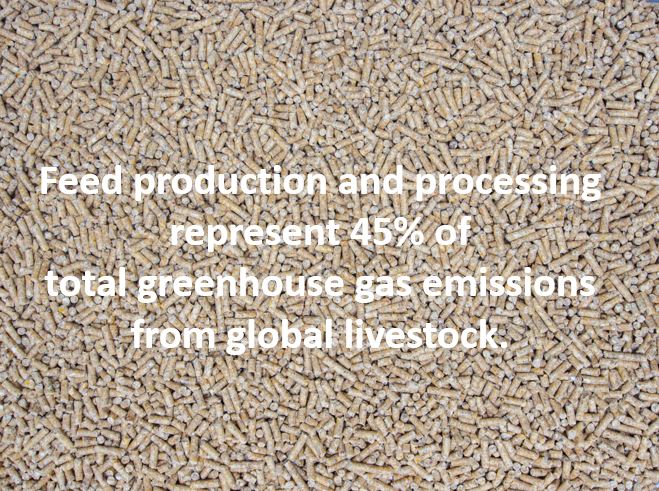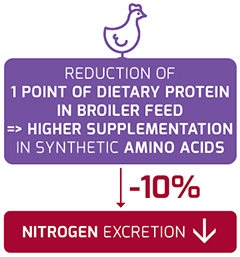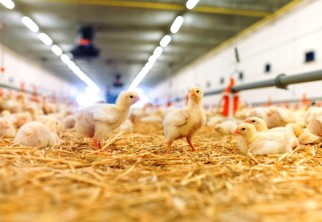The reduction of excretion is a key topic, with implications for eutrophication, acidification and global warming potential. Adisseo nutritional solutions can help to decrease nitrogen excretion through amino acids, multi-carbohydrases and reduce phosphorus levels through phytases.
Adding methionine (along with other amino acids) preserves the environment by reducing protein levels in feeds, therefore reducing nitrogen excretion and avoiding protein waste.
( Source : FEFANA booklet on amino acids (2015))
Enzymes (phytases and multi-carbohydrases ) are powerful ingredients in decreasing phosphorus and nitrogen excretion.
Multi-carbohydrase supplementation could decrease the excretion of ammonia by 13% (Geraert et al., JRA, 1997), and the combination of multi-carbohydrase and superdosed phytase – compared with no enzymes in the feed – decreased phosphorus excretion by 37% (Bello A. et al, APPC, 2018).





